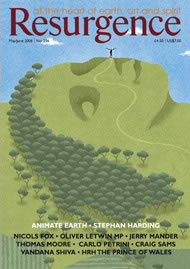IN THE LAST THIRTY years Britain has become one of the world’s wealthiest nations. Yet we suffer greater inequality among citizens, and increased prosperity has encouraged a corresponding increase in isolation and family breakdown. We are richer but not happier. Pressures of the globalised free market force us to compete internationally and locally, and the lures of consumer culture entice us to work harder to buy what we want but don’t necessarily need.
Madeleine Bunting’s timely, wide-ranging book examines dispassionately how the overwork culture is ruling and, by implication, ruining our lives. She says, “Life is work and work is life for the willing slaves who hand over such large chunks of themselves to their employers in return for the pay check. The price is heavy in the loss of privacy, the loss of autonomy over the innermost workings of one’s emotions, and the compromising of authenticity. The logical conclusion, unless challenged, is capitalism at its most inhuman – the commodification of human beings.”
Why do workers at all levels spend gruelling hours in the workplace? Many of the low-paid employees have to work double shifts, putting in long hours to support dependents; middle managers may need to keep up mortgage repayments or buy into a consumer lifestyle; at the top, overwork is the norm: you feel the pressure to keep the share price of your company high. Reinforcing the logic of competition and efficiency, the fluctuations of the stock-market are effective slave-drivers. They inculcate insecurity, the survive-or-die mentality enabling managers to insist that workers work harder and longer hours. The profit motive drowns better ones.
One coercive technique used by employers to make willing slaves of us, says Bunting, is the ‘brand name’. Companies she examined such as Microsoft, Asda and Orange use concepts such as brand loyalty and ‘teamwork’ to give the illusion that the company is bringing emotional meaning to people’s lives – meaning that was once provided by church and community. Staff become loyal to the image.
An Orange manager said, “I’m passionate about the business, and I care about the people and what we do … I try to incorporate the brand values into everything that I do.” He laughed, “It’s beginning to sound like a cult.”
Employees grow to believe that they’re part of a caring family. One manager’s admission fills me with dismay. “The staff are addicted to Microsoft. They’re in denial, but they live, eat and breathe Microsoft.”
Bunting concludes: “It’s an extremely clever, utterly internally coherent sealed community, divorced from its geographical context and, it would seem, from another social context.”
She argues that this empowerment and apparent egalitarianism, where the boss doesn’t wear a tie and eats in the cafeteria, aren’t quite what they seem. ‘Pursuing excellence’ sounds heartfelt but behind lies the profit motive: make more money for the shareholders. And for the workers themselves: spend and buy. This should not surprise us when shopping is reported to be one of our favourite leisure activities.
A gender difference surfaces in the current culture of overwork. The laudable aims of feminism to achieve equality are subsumed by a free-market capitalism eager for cheap, flexible labour. An insidious development. Women are now 45% of the workforce and likely to remain so. But the fact that women have traditionally been the chief carers in the community hasn’t been assimilated into working practices. Office hours are longer than school hours, so women try to work part time and then bump against the glass ceiling. Managerial positions don’t lend themselves easily to shared jobs.
The culture of overwork has bitten into our personal relationships. We’ve less time to care for our children, our aged relatives, our friends or even ourselves. We pay outsiders to do what once (sometimes willingly, sometimes not) we did at home. This commodification of care affects women in the role of carers, but we all suffer when bonds of nurturing are loosened.
What can we do to lessen the drawbacks of overwork? For individuals, Bunting describes some solutions: examples of women who have taken part-time, less stressful work to accommodate their families’ needs; couples who have downshifted jobs or moved to a smaller house with a cheaper mortgage to improve the quality of their lives.
She insists that government must prioritise affordable childcare and improved conditions of maternal and paternal leave. Britain lags behind other EU states in this regard.
She also advocates collective responsibility: that the unions, historically such a force for improving working conditions, should resume a more active role in society.
Although the thrust of this analysis can seem overwhelmingly gloomy, there’s optimism and evidence of changing priorities and values. Bunting believes that people themselves will readjust the work-life balance. To protect our families and our communities these changes cannot come too soon.
Dorothy Schwarz is co-author of Grey Friars: Opening the Door to Adult Education.







